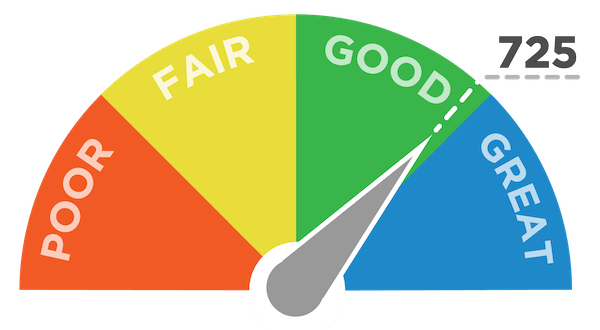Mortgage lenders want to have a complete picture of your history of repaying debts.
They do this by obtaining your credit reports from each of the three major credit bureaus. The credit report that the mortgage lenders use is called a tri-merge report. It is also known as Residential Mortgage Credit Report (RMCR). It is a single, easy-to-read (for a mortgage lender, not so much for consumers) complete report. This report is compiled from the individual credit reports issued by the three major consumer credit bureaus. This report often differs from the single bureau Free Credit Report that consumers get. As a side note on that subject, think twice before submitting your information on those check your credit score for free Apps. Doing so can expose you to all sorts of problems, the worst being, identity theft.
Your credit scores, obtained through RMCR are the basis of the terms of the loan terms you will receive.
TV commercials and incomplete information found on the internet have perpetuated the myth that your credit score is one magic number that you can move up quickly. This information is profoundly inaccurate. The process that a lender uses to calculate the credit score that will form the basis of their loan offer to you, which in turn will establish the interest rate and loan fees of your mortgage, is more complex than that.
Lenders base their decision on your middle credit score.
For couples, the lower of the two credit scores will determine the specific grid to be used. Here is an example. Let’s say Judy and Mark apply for a loan. When the lender looks at the RMCR, Judy’s credit scores turn out to be 637, 661, and 708. Judy’s lender will use 661. Mark’s scores turn out to be 649, 683, and 731. The lender will use 683 for Mark. Applying the rule of lower of the two middle scores as described above to this example, 661 will determine the terms of the loan.
The example above highlights information that will be useful to you when you discuss your loan offer with your lender.
Interest rates are determined by which credit score range your credit score may fall in.
It may slightly vary from one lender to the next; credit score ranges go from 620 to 650 and 650 to 680 and 680 to 720 and above 720. Even though Mark’s middle score is 683, which falls in the 680 to 720 range. Judy’s score of 661 will be used as the basis of the loan offer. The interest rate, and in some situations, even the loan fees will be higher for 661 than they would have been for 683.
Credit scores are based on complex algorithms that take a myriad of financial activities into account. Negative activity affects them more quickly because the event that caused it, has already occurred. Any positive activity must get seasoned before having an impact and reflecting an improvement in the score.
There are a few limited types of credit accounts that can show quick improvement, and thus an improved credit score. However, this will vary for each person and on the type of account. The best person to assist you in this regard will be the mortgage lender that you choose to work with.
For the reasons outlined above, I recommend to my clients that the first step in their home-buying process must be getting an underwriter’s loan approval.
It will save you time, money, and aggravation to get a complete understanding of your financial options earlier on in the process. You will have time to improve your credit scores if that might be needed or feasible. It will also help you pin down exactly what you can afford, which in turn will make your home search a lot easier. You can read more about a nine-point buying system here.


Comments (0)